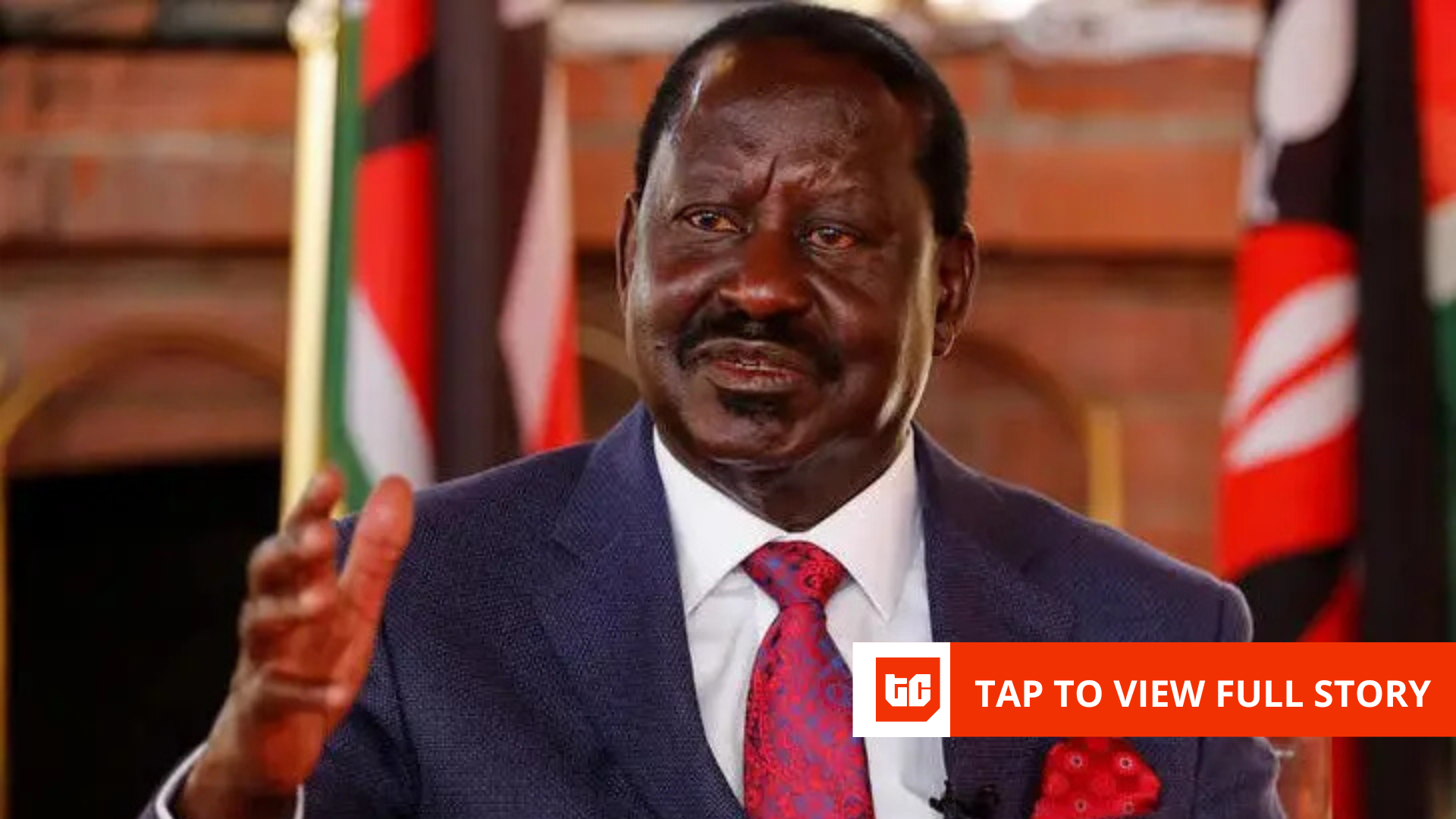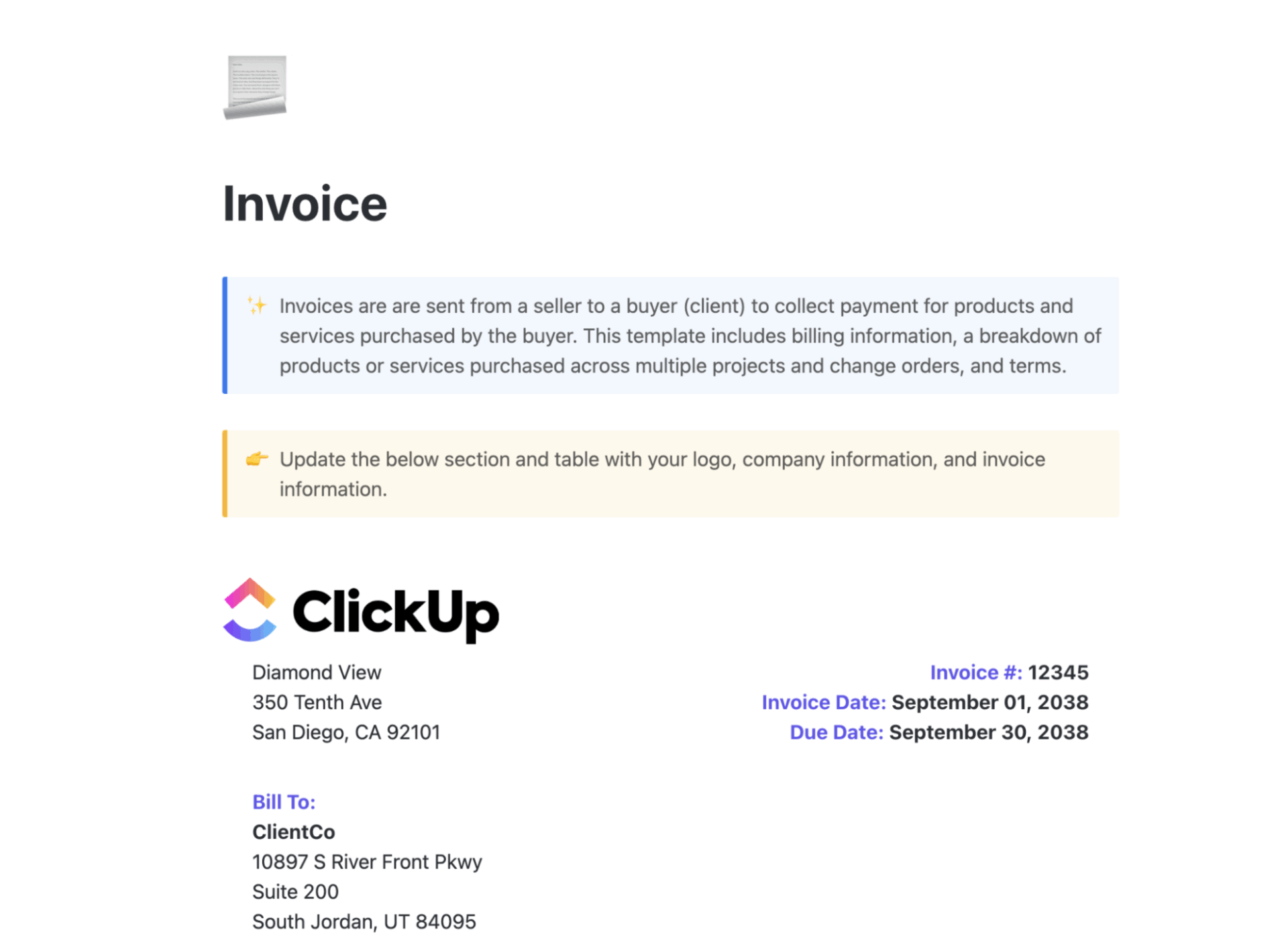On September 18, the verified X account of former Kenyan prime minister Raila Odinga briefly posted a promotion for a new cryptocurrency called the Kenya Token ($KENYA). The post, which was quickly deleted, claimed the token would soon launch and position Kenya at the centre of Africa’s crypto revolution. It was accompanied by a video that appeared to show Odinga endorsing the project.
“We are pleased to announce that [Kenya] token will soon launch. Kenya is stepping up to lead Africa into the crypto revolution, embracing digital finance and shaping a more crypto-friendly future,” wrote Odinga in the now-deleted post.
Odinga has not issued a direct statement, but accounts suggest that the post did not originate from him and that the video was a fabrication. Critics remain divided about the post’s true origins.
The episode exposes the growing nexus of deepfake media, compromised accounts, and opportunistic crypto projects seeking quick legitimacy. It also highlights how high-profile figures can be weaponised to lend credibility to fragile or fraudulent schemes.
A similar case played out in February 2025 in Tanzania when billionaire Mohammed Dewji’s X account was hacked and used to promote a fake token called $Tanzania. In that instance, a deepfake video showed Dewji apparently endorsing the token; by the time the account was reclaimed and warnings issued, the scammers had already raised nearly $1.48 million.
Trails followed by show that the creators of the Kenya Token launched a first version of their website on Thursday, branding the token as the “official digital token” of Kenya. The site promised staking opportunities, where investors could buy and hold the token to earn interest. The project’s Telegram channel currently has about 1,620 members, but since it has not launched yet, there is no contract address, and adoption cannot be tracked.
Several critics have labelled it a scam, noting that the project had no history before September 17, suggesting it was cobbled together at the last minute with no elaborate planning. Yet it remains unclear whether the actors behind the token still have access to Odinga’s X account and could further exploit public perception.
The episode mirrors global trends. In 2024, high-yield investment promises were one of the most common tactics to lure victims in crypto scams, according to a report from analysis firm Chainalysis. Nearly half of the scams came from projects offering unrealistic rewards without real utility. Other major fraud types included pig-butchering scams and rug pulls.
Kenya has already seen controversy around another project with a strikingly similar name. On July 11, a group of anonymous developers launched the Kenya Digital Token (KDT), or $KDT, marketing it as a tool for civic participation and a way for citizens to “buy into Kenyan heritage.” The launch immediately drew scepticism as it went live without a white paper or pre-sale, tools that investors typically rely on to test the project’s fundamentals.
“In July, when it first came out, there were obvious red flags such as the lack of a white paper and the presence of bots,” said one source who asked not to remain anonymous to speak freely. “Members of the crypto community pointed these issues out, and since then, the creators have been present in forums, slowly making adjustments to appear more legitimate.”
The KDT team later released a white paper later in July, describing the token as a non-investment project. It allows users to earn tokens by taking part in community activities such as scanning QR posters, joining educational tasks, or amplifying project news online, with tokens vesting after 36 months.
However, the same tokens can also be purchased in open markets on decentralised exchanges (DEXs), making them speculative assets in practice when people buy and hold them. This contradiction has led critics to argue that describing KDT as “non-investment” may simply be a way to avoid regulatory scrutiny while leaving room for market trading.
Checks by on Solscan, a blockchain explorer for Solana, where the token was built on, show that KDT’s adoption remains limited, with about 2,800 holders, less than $200,000 in liquidity, and a total supply of one million tokens. A major red flag is that one wallet controls 600,000 of these tokens, or 60% of the supply.
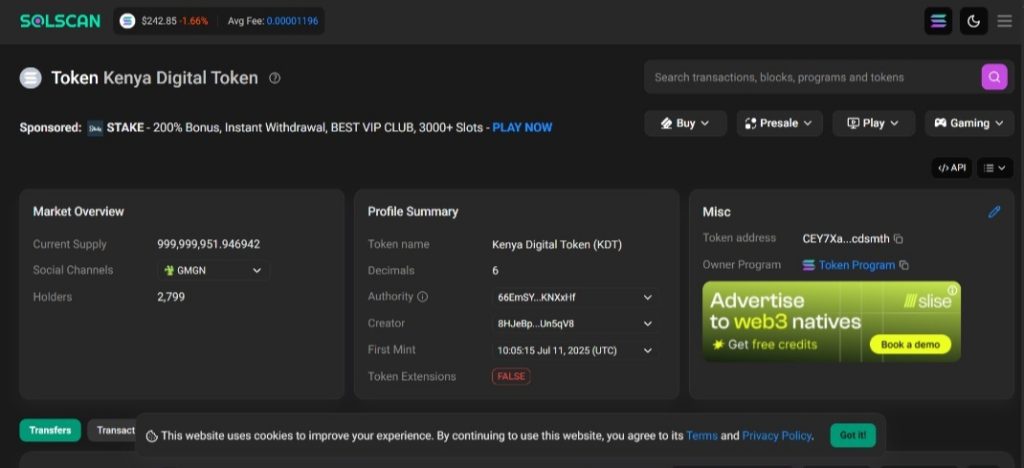
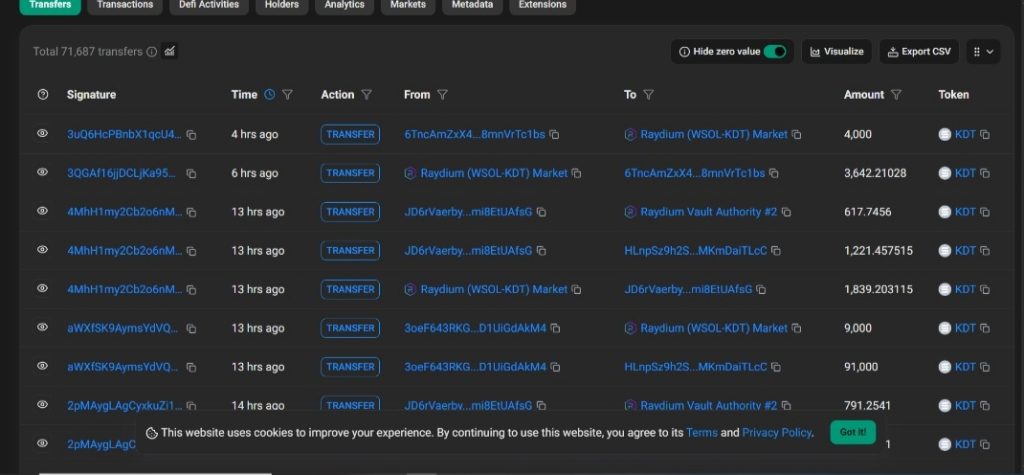
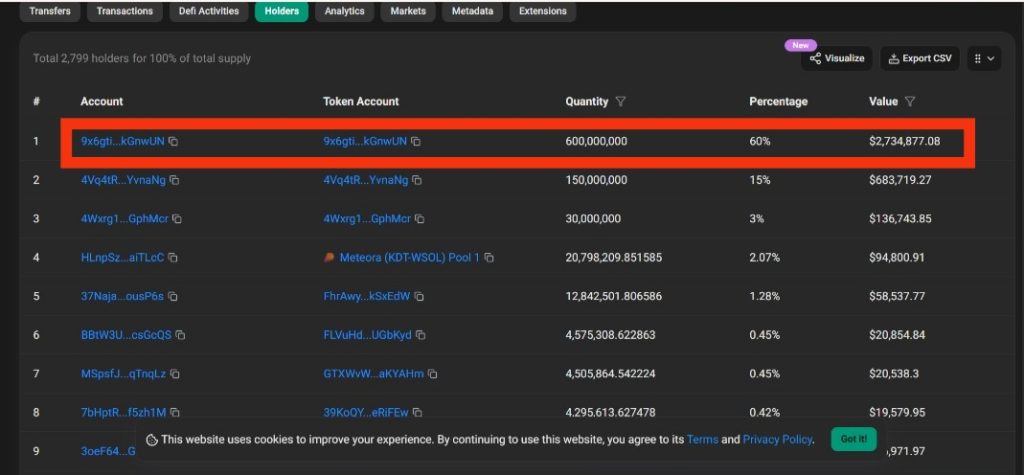
This level of concentration makes the project a classic rug-pull risk: if the whale account were to sell a large portion of its holdings after the price trends upward, ordinary investors could lose their money. For many of these critics, trust remains a non-factor.
The bigger picture is that such projects embody the risks lurking in the global crypto market, particularly when oversight is thin. Kenya has been moving to tighten its regulatory framework. The government has proposed a 10% excise duty on crypto transactions and announced plans to monitor trading activity for taxation. The Virtual Asset Service Providers (VASP) Bill, which seeks to regulate the sector more broadly, is scheduled for its second reading on September 23 when Parliament reconvenes from recess.
This is a developing story.
Mark your calendars! Moonshot by is back in Lagos on October 15–16! Meet and learn from Africa’s top founders, creatives & tech leaders for 2 days of keynotes, mixers & future-forward ideas. Get your tickets now: moonshot..com


